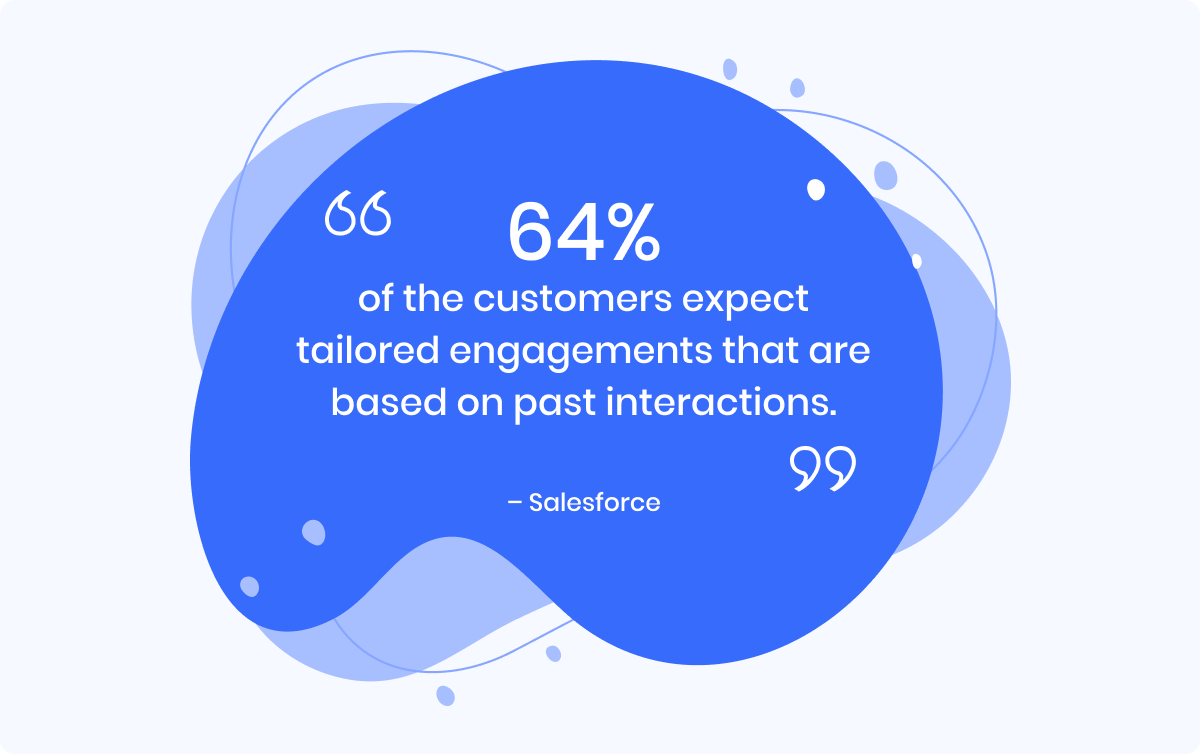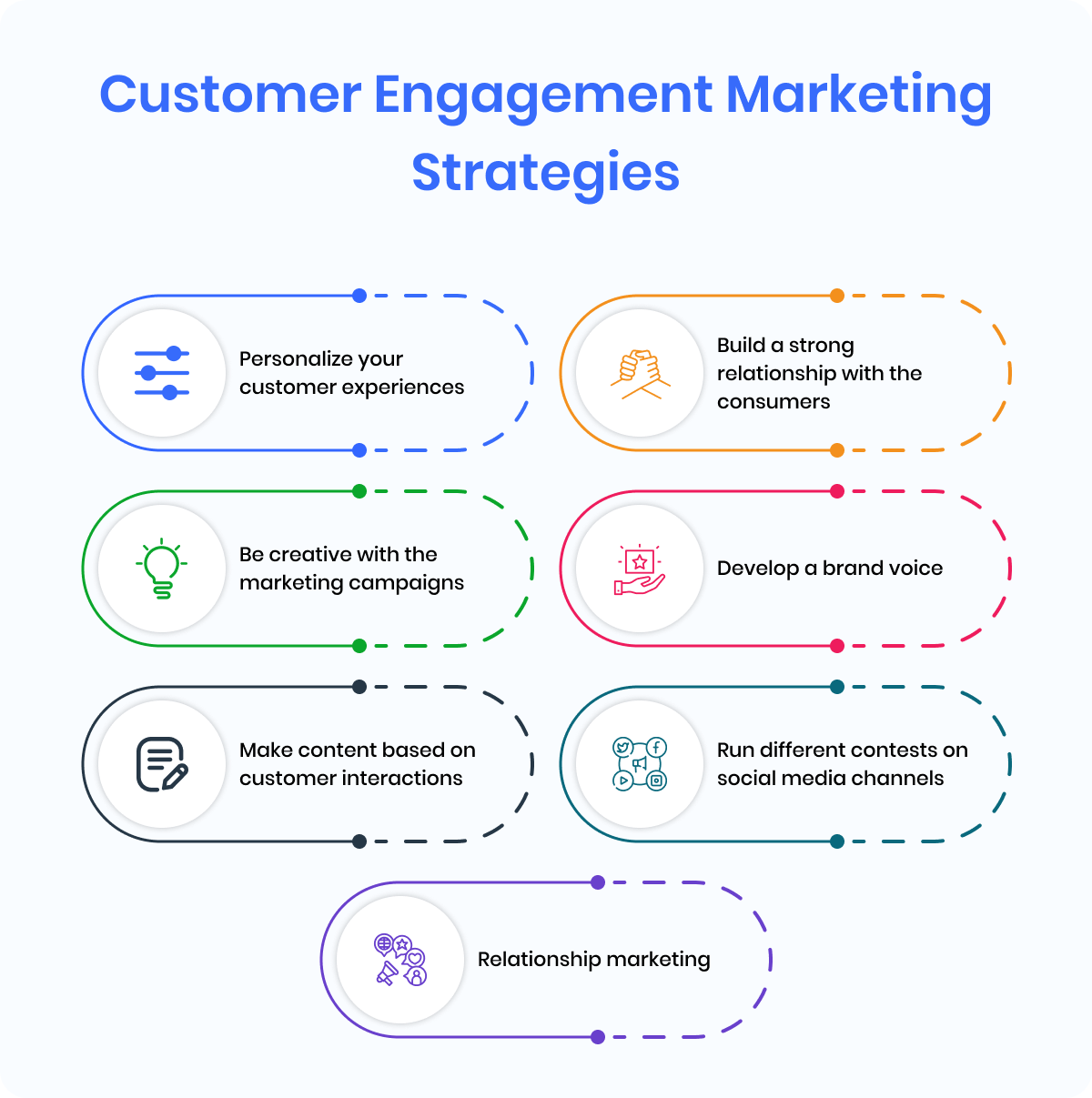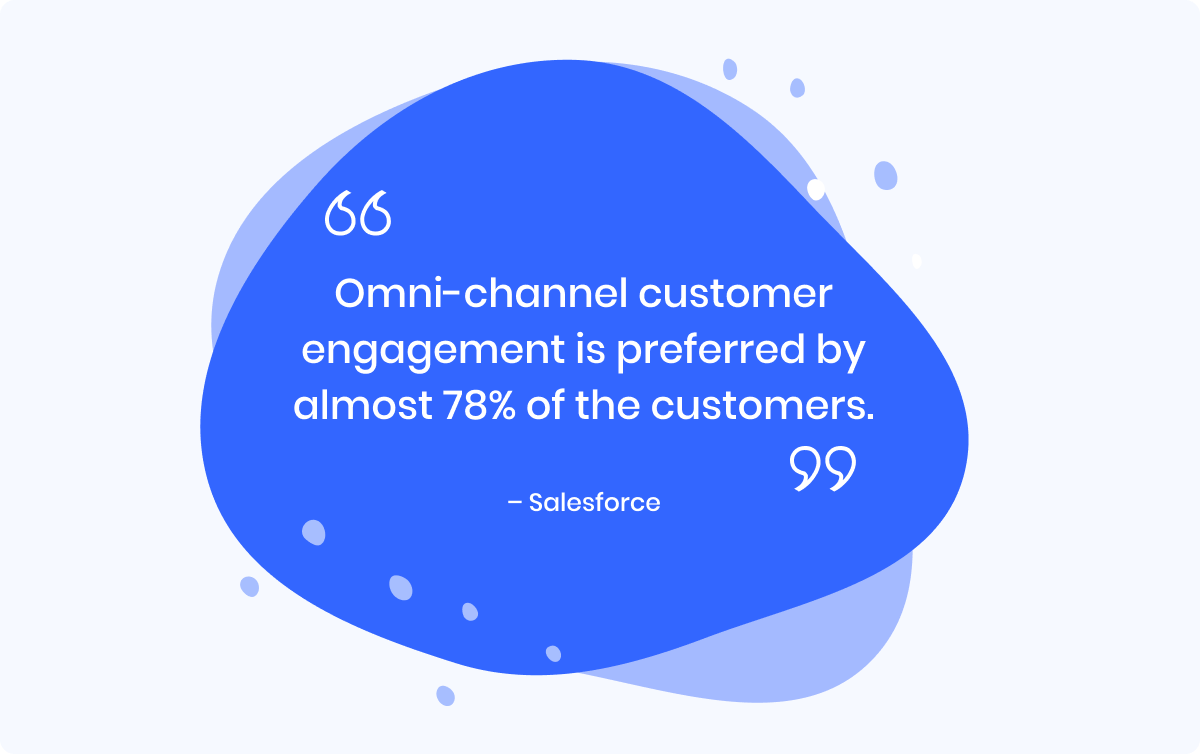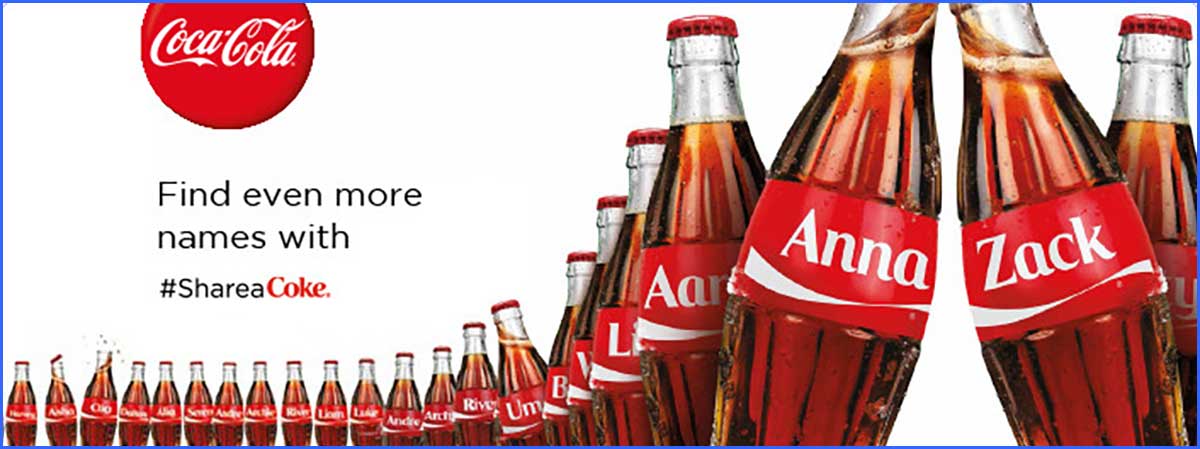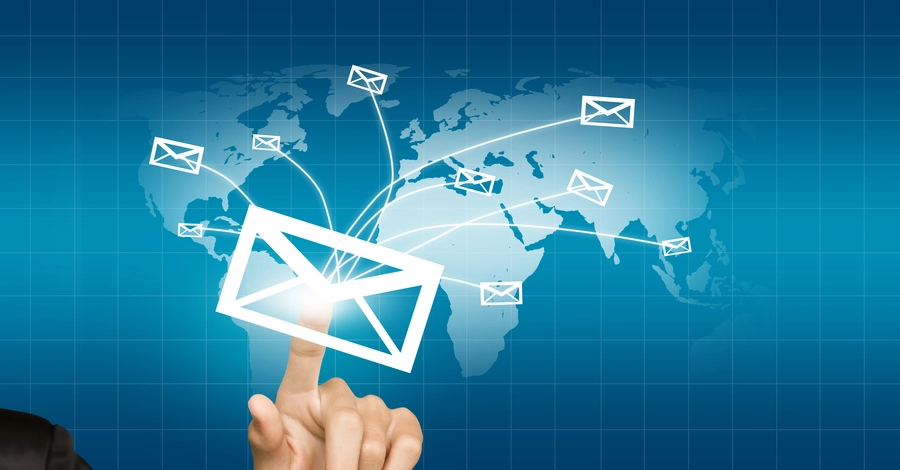Customer Engagement Marketing: Definition, Importance & Key Measures
- December 19, 2022
- 16 mins read
- Listen

Table of Content
Nowadays, whenever we read any marketing and advertising article, we tend to encounter the term customer engagement. But what does it mean? More importantly, how to get in there?
It is needless to say that there are several tested methods available that you can opt for to work on customer engagement for your company and trust me, they are not such complicated as they seem to be.
If you can target the right group of audiences, and offer compelling reasons for them to engage with your brand, they will.
The term, ‘customer engagement’ has become a buzzword now and you will get a huge bunch of articles available on the internet about it. But is it essential for your business? Here. Let me demystify the term today for your guys.
In this blog today, I will explain what customer engagement is, why this is important and how you can work on this for brand loyalty and sales conversions. So, here’s the 10-minute read to make you fully versed with everything about customer engagement.
What is Customer Engagement Marketing?
Customer engagement marketing defines the different ways that brands use to engage with their target audiences. The way-outs may include personalized interactions with the customers across their preferred channels.
Ideally, effective customer engagement marketing deals with two-way interaction between the company and its customers, where content here is the main medium to initiate and continue the conversations with each other.
Brands use different channels like email, social media, the web, community groups or forums, and many more to engage with their consumers.
It ensures that the users get more personalized experiences, and the brand address, and solve pain points, providing solutions based on their requirements.
Let me tell you a story here. Suppose you have got an email from Mr. Robert, manager of the company from where you recently purchased some products. He wants to ensure that you are happy with the products and give you information about the new releases and ongoing discounts.
After that, he thanked you for your recent purchases and wished you good health. What is Mr. Robert doing here? What is his intention in writing you the mail?
Well, these all fall under the company’s customer engagement marketing strategies. By sending you the email, Mr. Robert wanted to encourage you to buy more from the company.
The main motto of customer engagement marketing is to make customers believe that they will get more than just the products or services from a company, leading to making them comfortable with the brand and being loyal.
Why is Customer Engagement Important for Your Business?
Many times companies become so concerned with conversions, and customer acquisition that they tend to forget that customers have emotions too. Interacting with them beyond sales will help to strengthen the customers’ emotional bond with your company.
Strong emotional connections will help you to retain existing customers as well as maintain a long-term relationship with them.
Don’t forget that successful customer engagement marketing always plays a vital role in the decision-making process when it comes to buying something from your brand. It always keeps you at the top of everything in a customer’s mind if you can make a healthy relationship with him through effective communication. Not only that, they will be much more responsive towards all the marketing efforts taken by your company.
Developing customer-engaging content is not a joke. But if your company can pull it off, the advantages are great. Let’s discuss this.
1. Build a Healthy and Positive Relationship with Your Customers
With the usage of several latest technologies like chatbots and live chat, now it’s much easier to reach out to customers. In a saturated and highly competitive industry, if you don’t engage with customers apart from only the intention of selling your products, gradually your company will be a dead story.
Customer engagement marketing strategies help you to offer effective communication with the customers, making them comfortable with your brand. Happy and satisfied customers gradually become the brand ambassadors for your company.
2. Brand Loyalty
With the increased price of everything, now Cost Per Acquisition (CPA), other product and operational costs always stay on the higher side. In such a situation you cannot afford to only be concerned about getting new customers with the hope that they will always come back for business.
Customer engagement marketing here helps you to target your consumers with more personalized messages at the right time. It lets you make them feel valued and much more concerned about their benefits too.
What will be the outcome? You can get long-term loyalty from the customers and increased customer lifetime value (CLTV)
3. Know More About Your Customers
In the newest era of marketing, analytics can be called the powerhouse of everything. It lets you develop various data-driven strategies with a belief that all your efforts will resonate with your consumers.
While creating a customer engagement marketing strategy, you decide the appropriate content for each of your channels, understand your customer requirements and collect the analytics required for personalization.
The result here will be awesome- an excellent omnichannel customer marketing structure for targeting the right audiences at the right time with the most appropriate content.
4. Helps to Increase Customer Life Time Value (CLTV)
The more you understand you target consumers the more loyalty you get from them and the sooner you can increase the Customer Life Time Value (CLTV).
This can be possible because, with customer engagement marketing, you can develop a deeper relationship with your users, they will believe you, and whenever they want to purchase something, your brand will be the first one that always will come to their minds. Eventually, they will choose you over your competitors.
The more you gather valuable sales and user behavioral analytics, you can work further on other up-selling and cross-selling opportunities.
For example, if a large number of consumers are buying shoes from you, chances are that they also need shoe-cleaning brushes. So you can list the shoe-cleaning brushes as a ‘Frequently bought with’ section that will be sold as an add-on and give the users an option to add this too at their checkout page. Also, for a limited time, you can also sell it at a reduced cost.
This is a great example to make you understand how actually upsell and cross-sell work.
How to Get Started with Customer Engagement Marketing?
To develop an effective customer engagement strategy, YOU need to look into the best tactics mentioned below:
1. Set a Smart Goal For Your Business
First, let’s think of a SMART objective for your brand. Understand why you want to engage with your target audience. Yes, customer engagement is good and we all know it but why your company needs this? More importantly, decide how your customers get benefited if they engage with you.
Figure this out before you jump into making and designing different marketing campaigns and promotional activities.
2. Develop Cross-Functional Teams
I have mentioned earlier also that you cannot give the whole responsibility of customer engagement to a single department. Rather it has to be a team work with different departments managing different operations.
So, first, find out the specific teams that will be responsible for handling the different activities to engage with customers. This well-structured mode of working will not only let you divide the workload among different teams but also help to build a stronger and long-term digital marketing strategy to serve customers in a better way.
3. Identify Different Stages of Customer Engagement
Throughout the blog, I shall discuss more on customer engagement marketing, where you will see that different strategies work for different phases of your marketing campaign. Some have to be short term and some are for long-term goals.
So, you need to segment all the initiatives based on those long and short-term goals so that you will understand to prioritize the right deliverables for those specific times.
4. Measure the Outcomes of Your Customer Engagement Strategies Regularly
So, you have developed customer engagement strategies and started running several marketing campaigns successfully. Great going I must say. But your job does not end here, actually, it’s just the start.
You have to measure the effectiveness of those strategies too. You just cannot wait the whole year for it, especially if you have developed some short-term and long-term objectives to achieve. You can track it weekly, monthly, or even on a quarterly basis but be consistent so that you can understand the progress in a better way.
5. Develop Omni-Cannel Strategies for Customer Interactions
Be its customer engagement or sales conversion, the omnichannel approach always helps you to stay ahead of your competitors. In this competitive market, to make your brand alive, you cannot afford to be available on only one channel.
If you really want to get some happy customers and maximize sales conversions, then you have to offer engaging and compelling customer experiences by interacting with them over multiple channels per their preferences.
So, making omnichannel marketing strategies initially can be tough for you but trust me gradually everything will start working on the right path. If you are currently running marketing campaigns on a single channel, you don’t need to take the omnichannel approach all at once.
Take your time, understand the different segments, analyze the channel data, and understand your customers’ preferred channels. Then build your omnichannel marketing strategies keeping their preferred channels in mind. The focus should be on adopting an integrated marketing communication strategy to achieve consistency in messages to users.
6. Get Customer Feedback for Further Improvements
Once you have successfully made your campaigns live, there are a few steps that you need to follow to get the best results. First, review your pre-defined objectives, secondly, you need to track the analytics to monitor the effectiveness of the campaigns.
Gather feedback from everyone including the stakeholders, team members, your external partners, and most importantly the customers to identify what’s working and what’s not for further improvements.
If you really want to improve your customer engagement marketing strategies, take customer feedback very seriously. Here are some of the ways to get customer feedback:
- Through different online surveys, offer discounts in exchange for customer feedback
- Use different social listening tools to understand what customers are thinking about your brand.
- Many customers go to your company page on social media channels and leave their feedback there.
- Different customer loyalty programs also help to gather feedback from customers
Finally, you have got a handful of different customer feedback, it’s time to review those. If you see that some of your campaigns are not performing well, you can definitely cut them out.
How to Measure the Effectiveness of Your Customer Engagement Marketing Strategies?
As a digital marketer, I understand how important the metrics are. When you have invested so much of your precious time and resources to offer effective customer engagement, then you also should measure the outcomes.
I have mentioned below a few basic ways to measure the effectiveness of your customer engagement marketing. Yes, you can see different outcomes for different marketing campaigns, but these are some of the good points to give it a start.
1. Conversion Rates
Conversion rate always gives you an idea about how well your campaigns are going on. The conversion goal may be different like just filling up a form, selling a product or service, or even just downloading a white paper, etc, these conversion rates let you understand whether your customers are interested or engaged enough to listen to you.
2. Activity Time
It refers to how long the customers stay on your website. Content marketing can help you to increase the activity time here. The better your content will be, the more time customers will stay on your website.
3. Frequency of Page Visits
It helps you to understand the actual website traffic for a specific time. How many users are browsing your website and how long they are staying there etc lets you get an idea of the quality of customer engagement on your website?
4. Bounce Rate
Bounce rate refers to the percentage of website visitors that land on your website and leave silently after viewing only one of your webpage. It gives a clear picture of how your business is doing. The more the bounce rate is, the worse your business is performing.
The low bounce rate means that customers are browsing your website and visiting other web pages, spending an adequate time on your website, in short, they are interested in your products or services.
A higher bounce rate indicates customers’ lack of interest in your brand and the other products and offerings.
5. The Customer Acquisition Cost (CAC)
CAC calculates the increased customer satisfaction index. It is essential for the marketing and sales departments. The CAC data is also valuable for both parties- investors and organizations.
CAC deals with:
- Trading costs
- Innovation costs
- Advertisement, marketing, and sales costs
- Inventory costs
- Development, publishing, and promoting costs
6. Churn
You can use the churn rate to measure how good or bad your business is performing and of course, take necessary initiatives to stop the latter.
Churn shows your brand’s current situation and many times tries to handle critical situations when customers become rigid to cancel their subscriptions. Churn also gives you the very first indications of your clients’ dissatisfaction with you.
A lower churn rate is always better for your business.
7. Customer Satisfaction Score
Customer satisfaction and overall experiences measure the basic Customer Satisfaction Score (CSAT). The CSAT gives you an indication of how the customers are reacting to your brand, whether are they happy and will return to you for doing business again or not.
Here CSS will help you monitor customers’ behavior and understand how likely they will choose your company over your competitors.
Some more things for your consideration:
- Customer Effort Score (CES)
- Lifetime Value (LTV)
- Return on Investment (ROI)
- Engagement Rate (ER)
Some Great Examples of Customer Engagement Marketing
To achieve great results, you don’t need to make your marketing campaigns very complex, rather those can be simple ones yet much more effective.
Here, let me share with you some great examples of well-structured customer engagement campaigns with great messages that are enticing enough to engage with the customers.
Designed by Slack Technologies, Slack is a kind of instant messaging application for various businesses. It is owned by Salesforce.
For many of us, Slack has become an integral part of our daily workflow, but like any other popular application, we also wanted Slack on our mobile devices too. Slack has understood its customer requirements quite well and also contributed to the ‘always-on’ mode.
Want to know what Slack did? It is used to send gentle reminders to those customers who have downloaded Slack on their mobiles. The reminders were too kind to be remembered.
Through notifications, Slack reminded the customers to take good care of their health and wished for their well-being. Isn’t it nice? I love it.
How does a big brand that has become its consumers’ first choice do more to make them feel special? Well, I am talking about Starbucks now. Starbucks is the world’s largest coffeehouse chain, with more than 34,000 stores in 80 countries.
It came up with a new initiative named ‘Starbucks Reserve Roastery and Tasting Room’ for its customers where coffee lovers can see how coffee is made from fresh beans, try its different varieties, and have interactive sessions with the coffee specialists.
The experience that Starbucks provided to its customers was extraordinary. They also felt special for getting a chance to have a sneak peek of Starbucks’ product development process.
Customers always engage with things that are exciting and unique. Starbucks gave them a new appreciation that is much more than just a cup of coffee every single day.
Well, we all know this brand. Founded in 1892, this American beverage company has customers in more than 200 countries.
Do we still remember the famous customer engagement marketing campaign by Coca-Cola? In 2014, that specific campaign took the nation by storm. Under the campaign #ShareACoke, Coca-Cola removed the company logo from its 20-ounce bottles and replaced it with images of famous personalities in the US.
The campaign was a grand success because customers could relate to it through its beautiful engaging element.
This was more than a typical campaign for the customers, it was personalized keeping the customers’ emotions in mind. Even they could customize their own cans. The campaign was simple but the underlying message was great.
Personalized marketing is a must nowadays to get engaged with your target audience. It has become a compulsion. Most customers prefer personalized engagements based on their previous interactions with the brands.
Uber Eats can be a great example here. Launched by Uber in 2014, Uber Eats lets you order food online and get that delivered to your door steps. Based on customers’ geographic locations and past behavior, Uber Eats personalizes its messages with the restaurants.
Its behavioral-triggered messages inform customers about their missed opportunities and entice them to re-order food of their preferences.
You don’t need to personalize each and every message for the customers. Uber Eats creates engaging content that makes users hungrier for their favorite food.
Final Thought
Famous brands today tend to engage with consumers personally and the intention here is something more than just selling their products or services. In return, they are getting more repeat customers and increased sales conversions.
But the companies also make sure that customers get benefitted from their services. They offer incentives and personalize the customer journey by offering different engaging content that is relevant to their needs.
Apart from other loyalty programs that you organize in your company, customer engagement marketing also is a great way to make customers loyal to your brand. Walking the extra mile for your loyal customers will definitely help you to make them satisfied and stick to your brand for a long time.
To help you engage with your target audience and offer effective communication, REVE Chat offers a great omnichannel live chat solution for your brand. It offers a 14-day FREE TRIAL to try out all its features. SIGN UP today to know more about REVE Chat.

